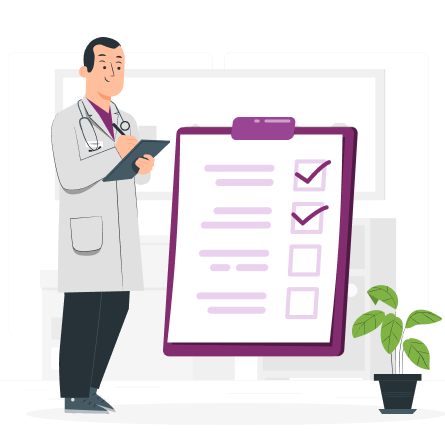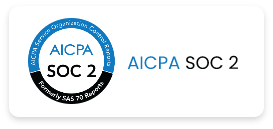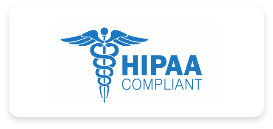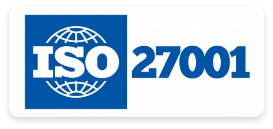Efficient Revenue Cycle Management Services
Maximize your revenue potential with our streamlined RCM services tailored to your medical practice needs.
Learn MoreAccurate MIPS Documentation & Reporting Consultancy!
Transcure helps you gather all the right documents and offers personalized MIPS consulting services to keep your finances on track.
Book ConsultationSeamless One Stop Billing Solution
Get Transcure EMR, Rounding App, Billing Dashboard, and Billing Services at 5% of your monthly collections.
Book AppointmentTailored Medical Billing Services For Your Practice
Minimize administrative burdens and fast reimbursement with our comprehensive medical billing services.
Learn MoreGet Comprehensive Medical Billing Audit
Discover clarity and efficiency in your revenue streams through our specialized medical billing audit services.
Get Free AuditUnleash the Power of Precision Lab Billing
Experience peace of mind and efficiency as our experts handle your laboratory billing intricacies, allowing you to focus on what matters most: advancing healthcare.
Learn MoreOur Robotic Process Automation (RPA)
Transform your operations with cutting-edge robotic process automation (RPA) solutions designed to streamline billing tasks and boost productivity.
Learn MoreEfficient Revenue Cycle Management Services
Maximize your revenue potential with our streamlined RCM services tailored to your medical practice needs.
Learn MoreAccurate MIPS Documentation & Reporting Consultancy!
Transcure helps you gather all the right documents and offers personalized MIPS consulting services to keep your finances on track.
Book ConsultationSeamless One Stop Billing Solution
Get Transcure EMR, Rounding App, Billing Dashboard, and Billing Services at 5% of your monthly collections.
Book AppointmentTailored Medical Billing Services For Your Practice
Minimize administrative burdens and fast reimbursement with our comprehensive medical billing services.
Learn MoreGet Comprehensive Medical Billing Audit
Discover clarity and efficiency in your revenue streams through our specialized medical billing audit services.
Get Free AuditUnleash the Power of Precision Lab Billing
Experience peace of mind and efficiency as our experts handle your laboratory billing intricacies, allowing you to focus on what matters most: advancing healthcare.
Learn MoreOur Robotic Process Automation (RPA)
Transform your operations with cutting-edge robotic process automation (RPA) solutions designed to streamline billing tasks and boost productivity.
Learn More
Trusted by
500+ Physicians

Catering to
40+ Specialties

1100+ Certified
Medical Billers & Coders

End-to-End
RPA Billing Solutions

Up to 98% First Pass
Clean Claim Rate



End-to-End RCM Services: Automated Medical Billing Like Never Before
Transform your healthcare revenue cycle management (RCM) and take your practice to the next level with our AI-powered solutions. Our automated system handles the complex tasks, freeing you to concentrate on delivering exceptional patient care.
Transcure can help you with:
- Eligibility Verification
- Collection and Payment Posting
- Patient Intake and Prior Authorization
- Revenue Reporting and Reconciliation
- Coding And Notes Review
- AR Analysis and Denial Management
- Patient Statement
- Provider Management
- Claims Processing

Medical Billing Services To Streamline Your Practice
We help healthcare providers do their best by taking care of their billing with efficient and seamless medical billing services. Each practice adheres to specific (SOPs), and we diligently identify an optimal billing solution to sustain the smooth operation of your practice. We look after your billing and coding while you can focus on patient experience.
- Patient Demographic Info
- Eligibility Benefits and Verification
- Medical Coding
- Denial Management
- Frequent Quality Checks
- Charge Entry Submission
- Payment Posting
- Recovery of Accounts Receivable
- Generating and Dispatching Patient’s Statements

Evaluate the Financial Health of Your Practice with Our Medical Billing Audit
If your healthcare practices are grappling with financial leakages, look no further than Transcure. Our company specializes in providing a thorough medical billing audit process. Our team of medical billing audit specialists conducts a thorough audit, focusing on several key performance indicators (KPIs).
Here’s a quick rundown of what we cover in our audit:
- Charges and Payment Analysis
- Year Wise Analysis
- Month Wise Analysis
- Provider Wise Analysis
- Payer Wise Analysis
- Location Analysis
- Fee Schedule Analysis
- Over Summaries Bucket-wise
- Coding Accuracy Review
- Compliance with CMS Deadlines
- AR with Unresolved Claims
- Unresolved Denials
- Outstanding Rejections
- Un-Submitted Charges
- Invalid Write-offs
- Pending ERA’s
- No Response Claims

Full Suite of RCM Solutions
Improve efficiency, save time, and increase patient experience with end-to-end revenue cycle management services.

Medical Billing
Services
Reduce claim denials to fuel your reimbursements and get paid on time to streamline revenue cycle.

Revenue Cycle
Management
Optimize revenue and increase practice productivity while decreasing administrative workloads.

Practice
Management
Automate practice workflows with scheduling, eligibility, reporting, efficient billing and much more.

Front Office
Management
We simplify front office management and help your office managers to streamline practice workflows successfully.

Medical Transcription
Services
We ensure that clinical data is accurately transcribed in compliance with HIPAA regulations.

Patient Benefits &
Eligibility Verification
Leverage modern patient experience and eligibility verification to achieve seamless processes.

Credentialing
Services
Get affiliated with maximum insurance payers to increase patient engagement and grow your network.

AR
Management
Effective AR Management ensures smooth cash flow for medical practice by efficiently collecting patient payments.
Our Success in Numbers








Our Success in Numbers
Ready to streamline your revenue cycle management?
Our Satisfied Providers, Our Testaments
Dr. Daniel L. Burkhead - Innovative Pain Care Center
Julia K. Saenz, Office Administrator - Panda Pediatrics and Adolescent Care
Ashlee Rose – Harding Memorial Healthcare
Jackie Judd - Wilson Creek Internal Medicine
Pat Vaughn - Medcom Health Services
Innovative Pain Care Center
Panda Pediatrics and Adolescent Care
Harding Memorial Healthcare
Wilson Creek Internal Medicine
Medcom Health Services
Our Certifications
We strictly adhere to compliance and state regulations and our certifications exhibit that well.



User-friendly and Specialty-Focused Products
Transcure offers purpose-built healthcare IT products to meet the needs of healthcare practices.




Knowledge Center
Get the latest healthcare industry insights to learn more about making your practice more profitable.

Case Studies
Discover how Transcure has helped medical practices overcome their billing challenges.

Infographics
Get to know how Robotic Process Automation is changing the practice verticals.

Blog
Explore the latest healthcare industry insights based on analysis and opinions of experts.

Articles
Discover health IT news and learn more about the ongoing trends around you with our article hub!

Whitepapers
Take a look at our knowledge-rich selection of billing problems and procedure automation whitepapers.

Testimonials
Make informed decisions about your practice success with real-time feedback. Explore the Clients thoughts!
Remove Your Billing Burdens with Transcure’s Expert Team
Managing medical billing and revenue cycle tasks can take up a lot of your time, making it harder to focus on patient care. Transcure makes it easy with expert billers and coders trained in ICD-10, CPT, and HCPCS. We offer RCM services for 40+ specialties and seamlessly integrate with 30+ EHRs for smooth billing. Being HIPAA-compliant and ISO27001 certified, we also ensure secure claims processing. Our team helps recover accounts receivable in just 24 days, reducing expenses by 25%. With daily, weekly, and monthly claim reports, you stay updated. We also follow state billing rules and CMS updates to keep your claims compliant. Let Transcure handle billing while you focus on patients!




















